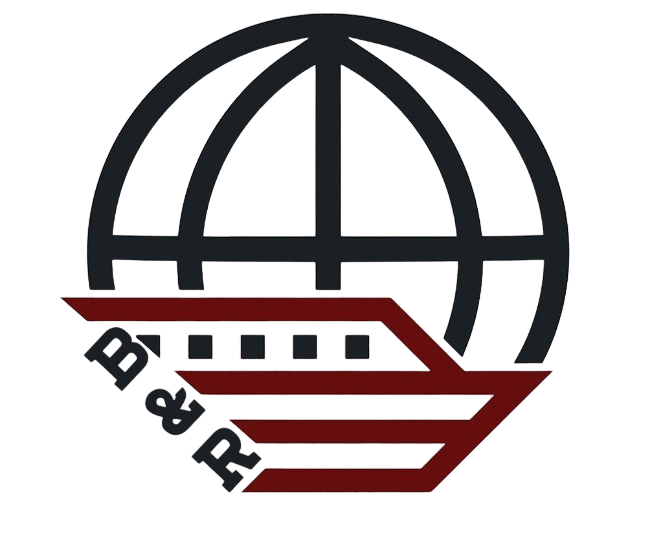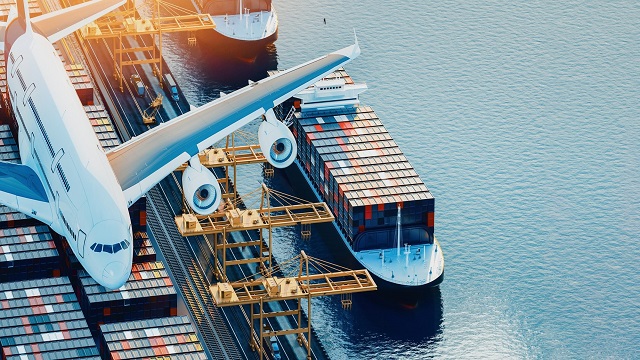logistics service provider ,logistics service provider،Customers now have high expectations for the advancement of logistics as e-commerce continues to grow, particularly in the wake of the Krona epidemic. A huge number of companies have labored to build the infrastructure needed to deliver quick and sophisticated logistics services.
However, a large number of Lew retailers are still trying to figure out what a third-, fifth-, or logistics provider implies. In light of this article, we will now explain each one of their roles to help company owners and traders decide what is best for the services they require.

logistics service provider
A logistics provider is an offshore company that controls the supply chain and serves as the intermediary between the client and the final consumer. It provides a variety of services in the interim, such as distribution, shipping, and transportation. Companies start integrating logistics providers to cut expenses associated with providing customs, assembling and packaging, and other services, but they rapidly find this is not the best strategy.
It also includes third-party, fourth-party, and fifth-party logistics providers who labor to analyze the industry, choose the best products to sell, provide cutting-edge technology, and provide beneficial services for clients, users, and consumers.
The ability to deliver consistently, rapid response times, quality, the application of contemporary technology, the development of price tables where cost-effectiveness becomes apparent, and transparency are just a few of the many capabilities that service providers possess that set them apart from one another
The benefit of corporate logistics providers
You may have noticed that many brands in e-commerce are expanding far more swiftly than companies that carry out consumers’ purchases by shipping and transporting them. This is due to their realization that joining forces with logistics service providers’ companies will greatly benefit them.
As logistics service providers, we guarantee the expansion of your business by saving you money that could be used to pay for warehouses, manpower, and a variety of shipping options. However, joining a logistics company enables employers companies to save time and money that can be used for other tasks like product marketing, product development, and boosting profit margins.
Solutions for e-commerce issues are also available from logistics service providers, who collaborate with other partners on the packaging, warehouse management, and logistics for export and import. In terms of shipping, PL3, which maintains close contact with significant shipping firms, will be in charge of offering the necessary plans for shipment within a pricing range that works for the company.
The proprietors of businesses have a wealth of international knowledge thanks to their collaboration with numerous businesses and electronic retailers. These businesses may reach their consumer base more quickly and efficiently by using this experience to assist them to make the best decisions and broaden the scope of their job.
As the logistics service provider leads a group of specialists, these experiences also offer a wide range of options for supporting infrastructure, streamlining workflow, and improving the supply chain. Any request can be fulfilled quickly since numerous logistical chores can be accomplished quickly with a solid infrastructure.
Benefits of logistics companies for clients
You can maintain supply chain management and the required infrastructure to meet your client’s expectations with logistics service providers. In order to increase delivery efficiency, logistics providers speed up the shipping and distribution process through different locations, whether it has already been through numerous operations like storage and packaging.
By offering a tracking service that enables the customer to observe the precise details of the current shipment status and by providing electronic methods that are operational around the clock and using contemporary technology, third-party logistics may also obtain a comprehensive picture.
Levels of logistics providers
First-Party Logistics (PL1): In this system, a dedicated fleet of trucks are used by logistics companies to manage shipment and storage.
Second-Party Logistics (2PL): Only the transportation portion of the supply chain is handled by the provider. Companies that use this strategy include shipping and trucking firms.
Third-Party Logistics (3PL): These logistics are in charge of overseeing a variety of services, including storage and transportation, and they strive to supply warehouses and a fleet of shipments depending on the movement of goods from warehouses to distribution centers.
Fourth Party Logistics (4PL): The company functioned as a consultant in the management of operations for their customers by contracting with PL3 and numerous shipping companies to give the necessary support. The company had no real assets to utilize in transportation or shipping operations.
Fifth-Party Logistics (5PL): an improvement above PL4, is where some businesses serve as consultants to provide services and negotiate contracts with shipping and supply chain management firms.
Sixth-party logistics (6PL): This sixth party manages the supply chain and employs resources to update and enhance services.
7PL Logistics combines PL3 and PL4n and has the benefit of PL3 to manage transportation and docking operations as well as supply warehouses and distribution centers. It also has the experience to function as a consultant to businesses and to enter into contracts on behalf of the customer.

The goal of logistics providers is to improve the service provider’s profit margin
There are substantial and varying costs associated with carrying out shipping, transportation, and warehouse provision. In order to ensure growth by understanding unpredictable transportation expenses like gasoline and maintenance, a list of pricing and offers had to be created after gathering sufficient facts. Therefore, gathering a lot of data and considering the big picture, helps create an integrated and comprehensive model that aids in increasing profit margins and decreasing costs.
Enhance the operational procedures of your service provider
By minimizing the usage of internal resources and expenses, logistics providers can enhance the business processes of the service provider. Then, it improves individual processes by gathering information about business and logistics processes and establishing metrics to spot roadblocks. After speaking with the staff to understand and interpret those metrics, it then makes a few minor adjustments to ensure that the changes are successful. In order to immediately and continually address risks and issues, the logistics provider also works to establish a solid and centralized logistics platform.
conclusion
We now understand the importance of the logistics provider to both the client and the service providers. You can now start searching for a logistics provider to manage all of your activities, including shipping, transportation, and storage, in order to expand and develop.


